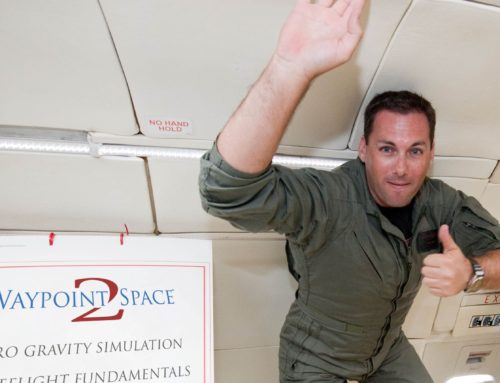For defense contractors looking for growth markets as Pentagon spending slows, the “final frontier” is looking more and more attractive.
“People really don’t understand how big a business space is. I mean, the commercial satellite market is enormous. It far dwarfs anything that’s going on in exploration,” said James Crocker, vice president of civil space at Lockheed Martin Space Systems. “There’s a lot of money to be made.”
The aerospace industry is hungry for a piece of space exploration and commercial development. Not only does it want to continue building today’s rockets and satellites — if humans were one day to go to Mars, the top firms want to be in on the mission.
Representatives for Lockheed and Boeing made their case in Washington on Tuesday for their involvement in NASA’s planned Space Launch System-Heavy Launch Vehicle and Orion spacecraft, which are being planned and built now in anticipation of human travel to Mars, as well as future missions of similar magnitude.
These programs, which are being developed jointly by the U.S. government, the aerospace industry and international space agencies, are the next step toward getting Americans into space aboard American spacecraft. Astronauts have been riding aboard Russian spacecraft since the end of the space shuttle era. The new programs are also a big potential boon to defense firms, which want to stay on the forefront of innovation in new fields.
“From Boeing’s perspective, it’s what we do,” said John Elbon, the company’s vice president and general manager of space exploration. “There’s just no way that Boeing’s not going to be involved in cutting-edge programs like SLS.”
Boeing doesn’t just see itself as an airplane company, Elbon said, but it can apply lessons learned in the commercial space to actual space. For example, he said the company’s design process for taking hardware from the drawing board to reality translated perfectly to space systems.
“That whole process was developed on commercial airplanes,” he said. “Really efficient process saves a lot of money, so we imported that from the commercial airplane world. A lot of the things that we do come from other places across the company.”
Company leaders say that having an active space program draws the best and brightest engineers and others to work at companies such as Boeing and Lockheed.
“There’s a cool factor that attracts people to space across the industry,” said Virginia Barnes, vice president at Boeing’s Space Launch System program. “It’s absolutely a recruitment tool.”
Crocker, of Lockheed, agreed, calling recruitment the “secret reason” defense vendors are pushing into the space game and investing their own research and development money to do so.
“We have a million résumés of people in our system wanting to go to work for Lockheed Martin, and it’s because of things like this that we do,” Crocker said. “Space exploration is a small part of the Lockheed Martin business, but it’s one of the most attractive to new students coming out of school. Yeah, they want to build F-22 Raptors and Joint Strike Fighters, but they also want to go to Mars.”
There’s no question, however, that if the U.S. moves into a new space age, it would be very different from the era that pitted the U.S. against the Soviets to put men into orbit, onto the Moon and aboard permanent stations around the Earth. In those days, national pride was on the line and money was no object. Times have changed.
“We have to recognize that there’s a finite budget,” said William Gerstenmaier, associate administrator for the Human Exploration and Operations Directorate at NASA. “Our activities have to be executable within the budget that we have available to us. So if you think of something that’s a grand plan, it works great but isn’t compatible with the budget, that doesn’t work.”
That’s why the government needs the aerospace industry to be a full partner on future space exploration missions, Gerstenmaier added: “We need to look at what industry’s doing in some areas, where industry’s picked up modern manufacturing, we can pull that back into our processes to again lower our costs. … We need to take the best things that are out there and look forward.”
As for the big aerospace vendors, they know the potential commercial uses of technology developed for deep space exploration could be highly profitable.
Crocker compared the industry’s work on space launch vehicles and the like to the advent of the GPS. When it was first developed, no one knew how many applications it would have one day.
With that lesson in mind, the industry is betting that the technology it could develop for spacefaring will someday be worth the effort.
“From the commercial perspective, who knows?” Crocker said. “You really can’t predict what technology’s going to do 20 years in the future.”
By: Leigh Munsil
To see the original article CLICK HERE


